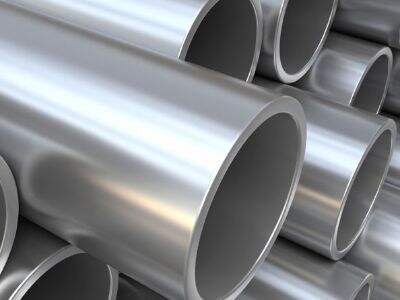Nickel is a specific type of metal that the industry professional uses in products due to its properties. Nickel alloys are metals that include nickel as a component when mixed with other types of metals. These alloys can come in a variety of grades, or mixtures of nickel with other metals. In this article, we will take a look inside nickel alloys grades and their use in certain circumstances.
How Strong Are Nickel Alloys?
Nickel alloys are strong, tough, corrosion-resistant metals, i.e., has great strength. Nickel alloy grades vary in their strength. In fact, some grades are far superior than others, which means that the strongest grades are well suited for certain applications where strength matters. So if they need to remain stable under heavy loads or challenging conditions, we would select a stronger grade of .nickel alloy pipe
What Is Corrosion Resistance?
Allows CorrosionCorrosion occurs when a metal begins to degrade through a chemical reaction with its environment. Nickel alloys have excellent corrosion resistance properties but not all grades have a high degree of corrosion resistance. Which grade to choose is paramount because it prevents the material from corroding or wearing away immediately. Choosing the right nickel alloy tube grade for your application will help prevent these issues, ensuring that the material lasts as long as possible.
Nickel Alloys Used for Elevated Service Temperatures
Connective materials must be able to withstand extreme temperatures in some industries without breaking apart. Due to their excellent heat resistance nickel alloys are usually the alloys of choice for these types of applications. But Nickel alloy flange vary in their high-temperature resistance. Some types can tolerate considerably hotter temperatures than others, making them more suitable for work in extreme heat. In the case of manufacturing or aerospace, where machines can reach extremely high levels heat, identifying the correct nickel alloy grade to use is essential.
Use of Nickel Alloys in Acidic Environment
Acidic environments are environments with a lot of acid. Certain industries use acids, and they require substances that can withstand these harsh environments. Nickel alloys a typical choices for acidic service, as they are characterized by good corrosion resistance in acidic environments. But like heat resistance, different grades of nickel alloys have different resistance to acids. Certain grades are considerably more resistant to acids than others. So it is crucial to choose a proper grade according to the corrosive conditions you work with – so that the material is resistant enough.
Effect of Alloy Composition on Properties
Nickel Alloy Designation Composition The chemical composition of a nickel alloy consists of the various metals used to form the alloy The combination of these metals can dramatically affect the performance of the alloy under real-world conditions. Nickel alloy grades vary in composition, so they will have different properties, such as flexibility and strength. Composition is important to know so that the performance of the material is understood. With this information, you will be able to choose which nickel alloy battlesuit grade will best suit your specifications.
Nickel Alloy Castings & Their Pros and Cons
Nickel alloy grade has its inherent advantages and disadvantages for specific industrial applications. Due to their distinct characteristics, some grades may perform better in some applications than others, and vice versa. To choose the right nickel alloy grade for your requirements, it is very essential to know the advantages and disadvantages of nickel alloy grades. This way, you can be sure that you are using the right material for the job, which can provide better performance and longer-lasting results.


